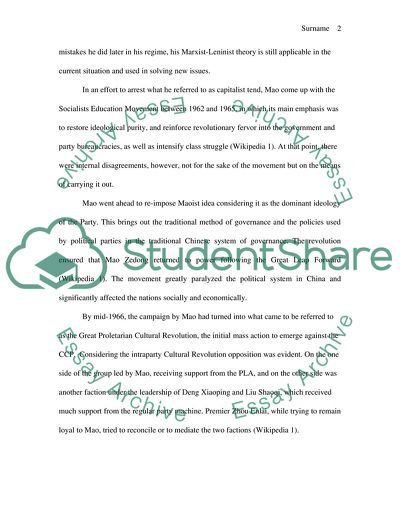Cite this document
(Essential Aspects of the Chinese Cultural Revolution Essay, n.d.)
Essential Aspects of the Chinese Cultural Revolution Essay. https://studentshare.org/politics/1848761-re-mediate-the-chinese-cultural-revolution
Essential Aspects of the Chinese Cultural Revolution Essay. https://studentshare.org/politics/1848761-re-mediate-the-chinese-cultural-revolution
(Essential Aspects of the Chinese Cultural Revolution Essay)
Essential Aspects of the Chinese Cultural Revolution Essay. https://studentshare.org/politics/1848761-re-mediate-the-chinese-cultural-revolution.
Essential Aspects of the Chinese Cultural Revolution Essay. https://studentshare.org/politics/1848761-re-mediate-the-chinese-cultural-revolution.
“Essential Aspects of the Chinese Cultural Revolution Essay”. https://studentshare.org/politics/1848761-re-mediate-the-chinese-cultural-revolution.


